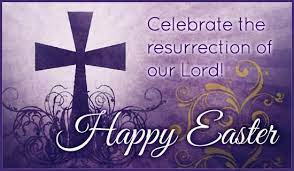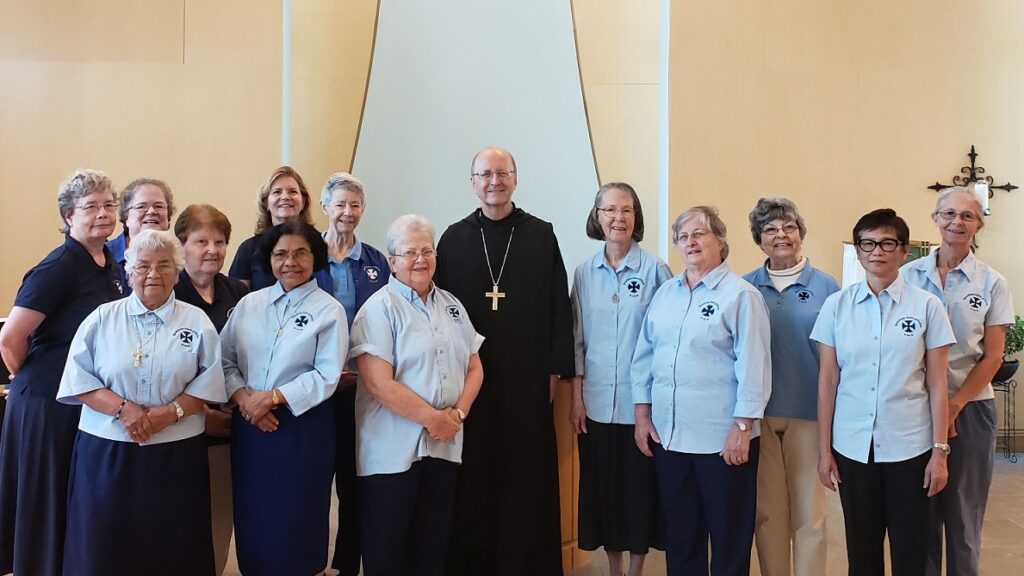This April 7th post just after Easter again features Abbot Gregory J. Polan’s Circular Letter. In case you missed the first part posted March 26th, his brief bio is repeated here.
 Abbot Polan was elected in 2016 as the Abbot Primate of the 1500-year old Benedictine Order and resides at Sant’ Anselmo in Rome. He serves the Benedictine community as its liaison to the Vatican and civil authorities to promote unity among the various autonomous Benedictine monasteries and congregations. Abbot Polan is the tenth Abbot Primate and the fourth American elected.
Abbot Polan was elected in 2016 as the Abbot Primate of the 1500-year old Benedictine Order and resides at Sant’ Anselmo in Rome. He serves the Benedictine community as its liaison to the Vatican and civil authorities to promote unity among the various autonomous Benedictine monasteries and congregations. Abbot Polan is the tenth Abbot Primate and the fourth American elected.
The following is more from Abbot Polan’s recent Circular Letter:
There are a few spiritual thoughts that have come to mind in recent weeks to offer for your reflection. In the Farewell Discourse of Jesus in the Johannine Gospel, he says, “Peace I leave with you. My peace is my gift to you, and I do not give it to you as the world gives it. Do not let your hearts be troubled, and do not be afraid” (14:27). In the Greek text of these few words, there is a sense in which Jesus is bequeathing something significant to his followers, a gift of profound import, a bequest of divine consequence. Today we can think of peace as an absence of anxiety, conflict or worry. As a Jew, Jesus knew that peace/shalom touched on the total well-being of a person – body, soul and spirit. These words of Jesus to his disciples came at that moment when he was about to enter into his paschal offering to the One he called Abba. It was to be a total offering of himself. We note in this Gospel text that it is not simply peace that Jesus gives his followers, but an emphasis on “my” peace. Jesus’ own peace would possess a character deeper and more profound because his disciples would also share in his mission. We might even call it a peace in the midst of paschal living, a peace that comes with the gift of self in a moment of personal self-offering, with a movement from challenge to blessing. And yet, this special peace is able to bring joy, inner comfort and strength in the midst of anguish and distress. But we see how deeply Jesus looked at his life and its meaning for others; he was able to see what others, especially his own disciples, were unable to see and understand fully. Only with time and spiritual wisdom would this make sense to them and to us.
In this passage, we find the ever so brief and powerful expression that appears on the lips of Jesus more than any other expression: “Do not be afraid.” As Jesus prepares to enter into his passing-over, he gives his disciples and us a gift of the spiritual life: Do not be afraid. In accepting the evolving plan of God, Jesus shows us the path to glory, to victory and to a peace that this world cannot give. This is something so important for us to hold on to in any variety of situations that come our way. Could Jesus have already seen this in the rich tradition of his ancestors in the Laments of the psalter? I believe so. Even when we read the painful words of the Laments in the Psalms, notice how there is a word of hope, a call to courage and a belief that Gods’ providential care will “win the day” amid life’s challenges. On my desk, I keep a card with the words my doctor from the United States sent to me: “Remain calm, stay strong, carry on.” I think these words reflect in a contemporary way the words of Jesus to his disciples.
Be sure to watch for two more thoughtful posts from Abbot Polan in the coming weeks.
Continue Reading





